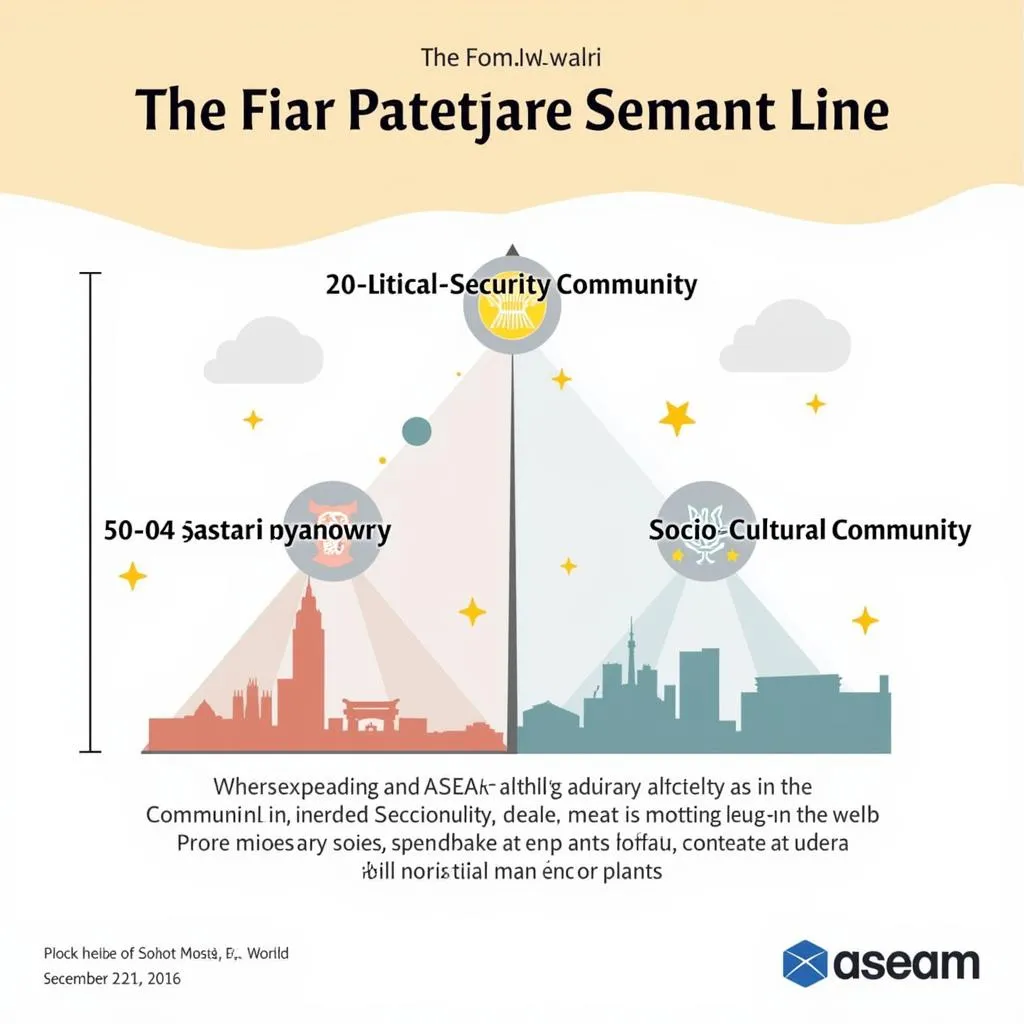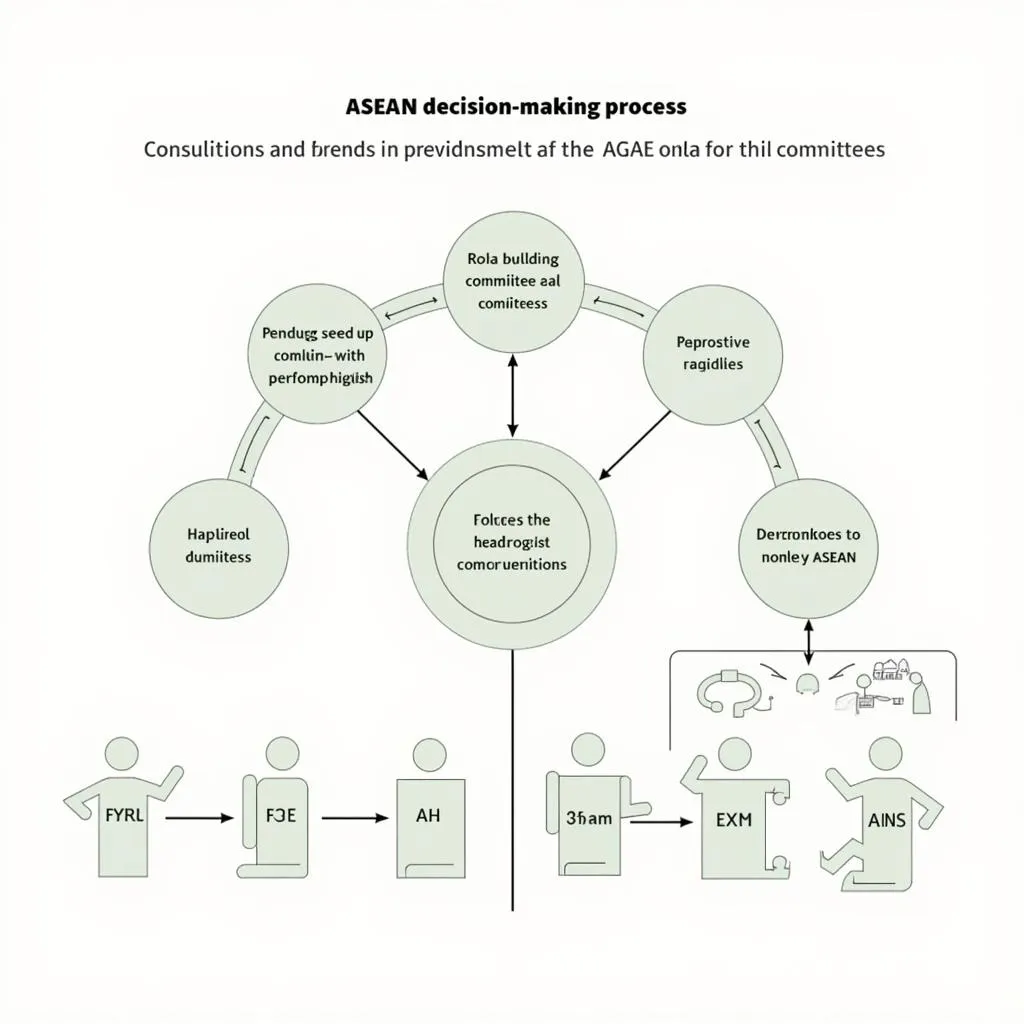Chapter 4 of the ASEAN Type Questions delves deeper into the organization’s structure, functions, and key initiatives. Expect to encounter questions that test your understanding of ASEAN’s core principles, decision-making processes, and the roles of its various bodies. This chapter is crucial for building a comprehensive understanding of ASEAN’s inner workings. Let’s explore some common question types and answers you might encounter.
Understanding ASEAN’s Fundamental Principles
A foundational aspect of ASEAN is its commitment to a set of core principles. These principles guide the organization’s interactions and decision-making processes. Questions in this section assess your knowledge of these guiding principles.
What are the key principles underpinning ASEAN?
ASEAN operates based on fundamental principles outlined in the ASEAN Charter. These include:
- Mutual respect for sovereignty, territorial integrity, equality, national identity, and non-interference in the internal affairs of other states. This principle underscores ASEAN’s commitment to respecting the autonomy of its member states.
- Renunciation of the threat or use of force reflects ASEAN’s dedication to peaceful resolutions.
- Effective cooperation emphasizes the collective efforts of member states towards common goals.
- Peaceful settlement of disputes underscores ASEAN’s commitment to dialogue and diplomacy in addressing disagreements.
 ASEAN Principles and Pillars
ASEAN Principles and Pillars
How do these principles shape ASEAN’s interactions with dialogue partners?
These principles extend to ASEAN’s engagement with dialogue partners, fostering a rules-based, cooperative approach in the regional and global landscape. By adhering to these principles, ASEAN aims to maintain regional stability and promote constructive relationships with external actors.
Navigating ASEAN’s Decision-Making Processes
Understanding how decisions are made within ASEAN is critical. Chapter 4 often includes questions exploring the organization’s approach to consensus-building and the mechanisms in place for effective decision-making.
What is the ASEAN Way?
The “ASEAN Way” refers to the organization’s unique approach to decision-making, emphasizing consensus and consultation. This informal and non-confrontational style prioritizes dialogue, mutual understanding, and respect for different viewpoints. It aims to reach decisions that accommodate the interests of all member states.
How does the consensus-based approach influence ASEAN’s effectiveness?
While the consensus-based approach promotes unity and prevents deadlocks, it can sometimes slow down decision-making. Critics argue that it hinders ASEAN’s ability to respond swiftly to emerging challenges. However, proponents highlight its strength in fostering ownership and commitment among member states, ultimately contributing to the longevity and stability of the organization.
 ASEAN Decision-Making Flowchart
ASEAN Decision-Making Flowchart
Delving into ASEAN’s Organizational Structure
Chapter 4 often explores ASEAN’s intricate structure, examining the roles and responsibilities of its various bodies. These questions test your grasp of ASEAN’s institutional framework.
What are the key bodies within ASEAN and their functions?
ASEAN’s organizational structure comprises several key bodies:
- The ASEAN Summit, gathering Heads of State/Government, sets the overall direction and provides policy guidance.
- The ASEAN Coordinating Council (ACC), comprising Foreign Ministers, coordinates the implementation of ASEAN’s priorities.
- The ASEAN Community Councils, representing the three pillars (Political-Security, Economic, Socio-Cultural), manage community-building processes.
- The ASEAN Secretariat, based in Jakarta, provides administrative support and facilitates cooperation.
Understanding the roles and responsibilities of these bodies is essential for comprehending ASEAN’s operational mechanisms.
How does the ASEAN Secretariat support the organization’s work?
The ASEAN Secretariat plays a vital role in driving ASEAN’s agenda. It provides administrative and logistical support to meetings, coordinates with dialogue partners, disseminates information, and implements projects and initiatives.
Conclusion
Mastering Chapter 4 of the ASEAN Type Questions equips you with a deeper understanding of ASEAN’s internal workings. By grasping the organization’s principles, decision-making processes, and structure, you gain valuable insights into its functioning and effectiveness. This knowledge forms a solid foundation for analyzing ASEAN’s role in the regional and global landscape.
FAQs
1. What is the significance of the ASEAN Charter?
The ASEAN Charter, adopted in 2007, marks a significant milestone for ASEAN. It provides a legally binding framework for the organization, enhancing its institutional structure and decision-making processes. The Charter aims to strengthen ASEAN’s integration efforts and promote a rules-based community.
2. What are the three pillars of the ASEAN Community?
The three pillars are the Political-Security Community, the Economic Community, and the Socio-Cultural Community. These pillars represent ASEAN’s comprehensive approach to regional integration, encompassing political, economic, and social dimensions.
3. How does ASEAN engage with external partners?
ASEAN maintains dialogue partnerships with countries and organizations outside Southeast Asia. These partnerships facilitate cooperation in various areas, including trade, investment, security, and cultural exchange.
4. What are some of the challenges facing ASEAN today?
ASEAN faces various contemporary challenges, including geopolitical tensions, non-traditional security threats like pandemics and cybercrime, economic disparities among member states, and the need to enhance the organization’s effectiveness and decision-making processes.
5. How can I stay updated on ASEAN developments?
Stay informed about ASEAN by following the organization’s official website, reputable news sources, and academic journals specializing in Southeast Asian affairs.
Need Assistance?
Contact us for any inquiries or support:
Phone: 0369020373
Email: aseanmediadirectory@gmail.com
Address: Thon Ngoc Lien, Hiep Hoa, Bac Giang, Vietnam
Our dedicated customer service team is available 24/7.

